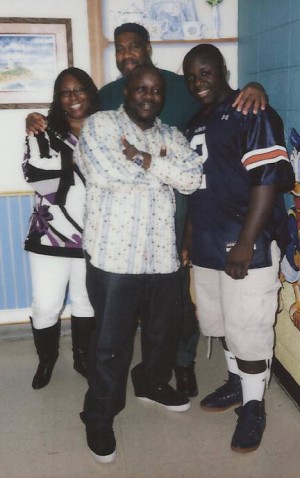
One of things I’ve found fascinating about working in social justice organizations are the moments when an issue arises with so many implications for your work that information explodes from multiple channels and networks. That happened to us at the RFC over the past few weeks as friends, allies, current and former beneficiaries and supporters contacted us regarding Governor Cuomo’s proposal to decrease visiting days for inmates at New York state prisons.
The governor proposed cutting back visiting hours from seven days a week to just three, arguing that most visits happen on weekends and that the change would result in significant savings for the state. Numerous coalitions working on behalf of prisoners’ rights, children, criminal justice reform and an end to mass incarceration rallied against the proposed change, circulating petitions and encouraging the public to write to Cuomo to oppose the plan.
Fortunately, news reports indicate that their hard work is going to be successful . It appears that the governor is keeping the current schedule and restoring the funding he threatened to cut (see this article for more information).
It’s not surprising that this issue provoked strong responses from the RFC community. Throughout our history, a significant percentage of RFC beneficiaries have come to us because one or more parent or grandparent is a political prisoner. Our Attica Prison Visit program provides funds to allow children to visit incarcerated loved ones because we know how critical these visits are to help families maintain connections while a relative is behind bars.
An array of studies illustrate the challenges facing children of prisoners and what support structures are critical (see reports from San Francisco Children of Incarcerated Parents Partnership, Family to Family California resources, The Sentencing Project, and Legal Services for Prisoners with Children) . In addition, members of our community have shared with us their personal stories about the challenges of separation and the joys and significance of prison visits:
- “My father is a political prisoner sentenced to 65 years. This has taken an extremely difficult toll on [me and my siblings] emotionally, physically and mentally, even with more frequent visits. The visitations are extremely difficult. But we are so thankful for RFC for helping out financially."
- “[The RFC Attica grant for my daughter allowed me] to not just be a ghost in the phone, a soundless word on a page. Thank you for easing the pain and fear that my family felt as we were suddenly separated…It is inspiring to me that out of such a painful, tragic chapter in this country’s history and in the history of one family, such a compassionate force for good has been born that benefits so many families now.”
- “My father was on trial in 1949 [for being a communist] and was released from prison in 1955. My mother was arrested and sentenced also in the 1950s. Support from family, good friends and other democratically minded people helped us through that terrible time. I was sent to camp and help was given to make sure we were able to visit my dad in the various federal prisons where he was sent. Knowing I was not alone gave me hope and strength…” (from an RFC donor)
- "[My granddaughter] was a good student before her mother’s incarceration, and continues to do well in school. Nonetheless, emotionally, it has taken a toll. She and her younger brother often argue, much more than when their mother was at home. I found [my granddaughter], recently, in a dark room alone crying over her mother.” (from the grandparent/guardian of an RFC grant recipient)
- “I am still on a high from visiting my dad. It was something we all needed and as I said before, we are very grateful to you and the Rosenberg Fund for Children [for funding the trip to see my father in prison].”
We’ll continue to follow developments regarding changes to prison visiting schedules in New York and elsewhere. In the meantime, we commend all the coalitions and individuals who fought to prevent the establishment of onerous obstacles to these vital connections for prisoners’ children and other loved ones.
